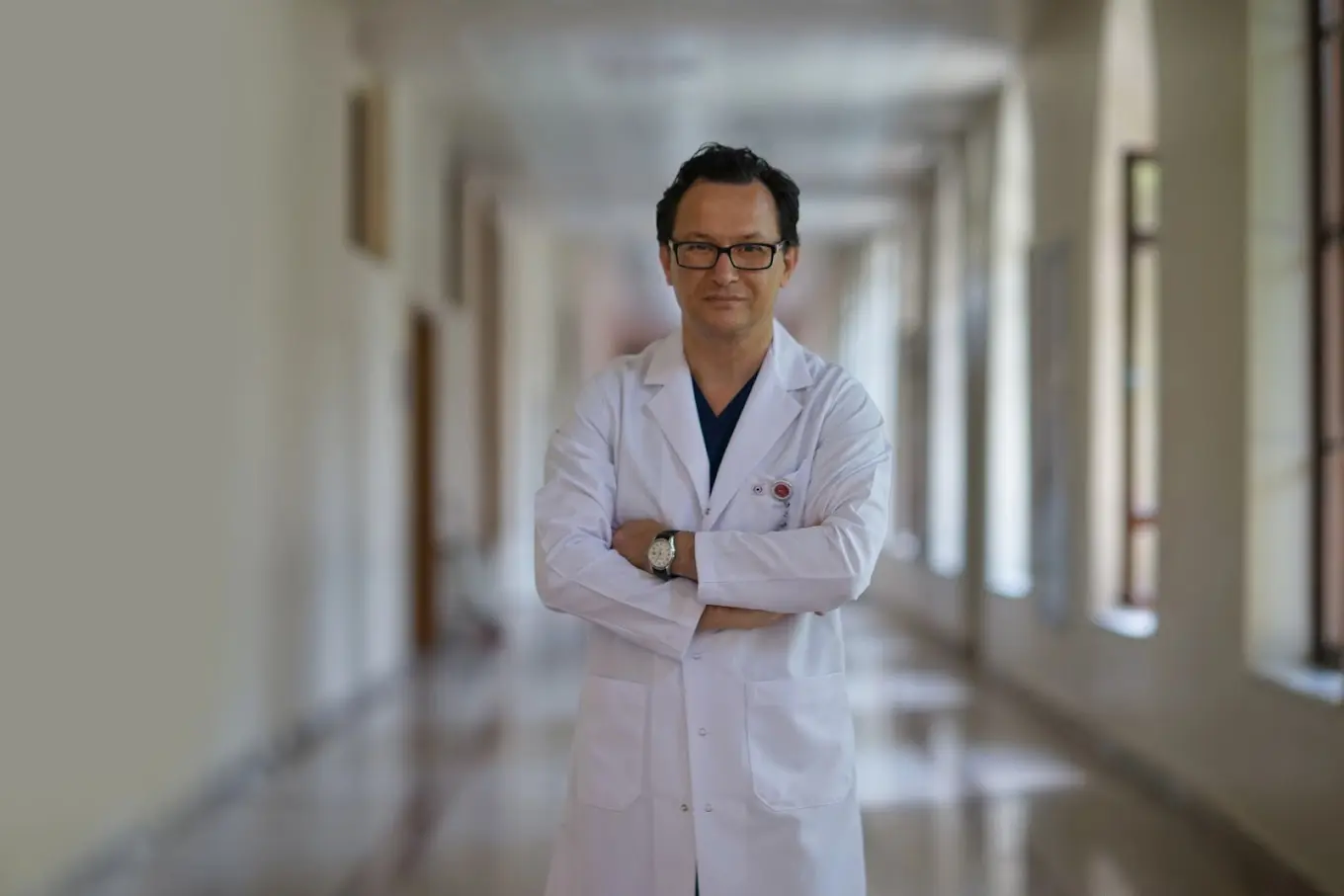Interview with Dr. Halil Coskun: all about bariatric surgery and obesity control
Dr. Halil Coskun, thank you for taking the time to talk to us. First, could you briefly explain what bariatric surgery is?
Dr. Halil Coskun: Of course, bariatric surgery is a surgical procedure that aims to help patients fight obesity. This is achieved by changing the anatomy of the stomach and sometimes the intestines to reduce the amount of food consumed and the absorption of calories.
And what are the main goals of this type of surgery?
Dr. Halil Coskun: The main goal of bariatric surgery is to provide patients with significant and long-term weight loss. This not only improves overall physical fitness, but also significantly reduces the risks and improves control of obesity-related diseases, including type 2 diabetes, hypertension, coronary heart disease, and sleep apnea. The approach is individual for each patient and requires a comprehensive examination and preparation for bariatric surgery.
And who is usually recommended for this type of surgery?
Dr. Halil Coskun: Candidacy for bariatric surgery is determined individually based on the patient’s medical history and current condition. It is generally recommended for people with a BMI of 40 or higher, which indicates severe obesity. It may also be considered for people with a BMI of 35 or higher if there are serious underlying medical conditions such as diabetes, hypertension, or severe respiratory problems. It is important to understand that bariatric surgery is not an easy decision and requires a commitment from the patient to change their lifestyle after the procedure.
What are the different methods? How is it determined which one is right for a patient?
Dr. Halil Coskun: There are various methods used in bariatric surgery, including gastric bypass, which creates a small stomach pouch, and band surgery, which uses an adjustable ring around the stomach. There are also other options, each with their own benefits. The choice of method depends on many factors: the patient’s overall health, obesity history, underlying medical conditions, and personal preference. We provide comprehensive analysis and consultation to determine the most appropriate and safe method for each individual case.
You mentioned positive changes. Could you elaborate on the benefits?
Dr. Halil Coskun: Of course, the benefits vary, but most patients notice a significant improvement in the control or complete disappearance of obesity-related diseases such as type 2 diabetes, hypertension, sleep apnea and cardiovascular problems. Mobility improves, allowing patients to lead a more active lifestyle, and their self-esteem and social adaptation significantly improve. In addition, many notice an improvement in the overall quality of life: reduced joint pain, improved breathing and sleep, the ability to engage in physical activity without undue discomfort. It is important to emphasize that the success of the surgery also depends on subsequent adherence to dietary and lifestyle recommendations.
What about the risks and disadvantages?
Dr. Halil Coskun: Like any surgery, bariatric surgery has its risks, including infection, bleeding and digestive problems. It is important to have a thorough discussion with your doctor to fully understand all possible consequences and risks. This will help you make the right decision and prepare for the surgery and recovery period with a full understanding of what to expect.
Is there anything patients should do to prepare for surgery?
Dr. Halil Coskun: Indeed, preparing for bariatric surgery includes following a special diet that helps reduce the size of the liver and the amount of fatty tissue around the stomach, making the surgery easier. It also minimizes risks during surgery and promotes a speedy recovery. In addition to diet, it is extremely important to discuss with your doctor any medications you are taking, as some may affect the surgery and recovery. Also discuss any changes in your lifestyle, especially related to nutrition and physical activity, to prepare your body for the changes after surgery. Careful preparation and an open dialogue with your doctor are the keys to a successful outcome and long-term results.
Another important aspect that our readers often ask about is the cost. How much does bariatric surgery usually cost?
Dr. Halil Coskun: This is a really important question. The cost can vary greatly depending on many factors, including the country where the surgery is performed, the method chosen, the length of the hospital stay, and additional medical services. In some cases, insurance may cover some or all of the cost of the surgery if it is medically necessary. I always recommend discussing these issues with your doctor and insurance company to get a more accurate bariatric surgery quote for your specific case.
One last question, what should patients be prepared to do after surgery?
Dr. Halil Coskun: Recovery takes time and lifestyle changes. Patients need to follow a strict diet, consult with their doctor regularly, and possibly take vitamin supplements. It is also important to focus on exercise and maintaining a healthy lifestyle.
Dr. Halil Coskun, thank you for your time and detailed answers. Your opinions and advice will undoubtedly help many of our readers.
Dr. Halil Coskun: It was my pleasure to help. I hope this information will be useful to anyone considering or going through bariatric surgery. Remember, an individual approach and close cooperation with your doctor are important.
If you would like to learn more about bariatric surgery in Turkey, please fill out the form below and our medical consultants will contact you for a free consultation or to arrange a treatment plan







